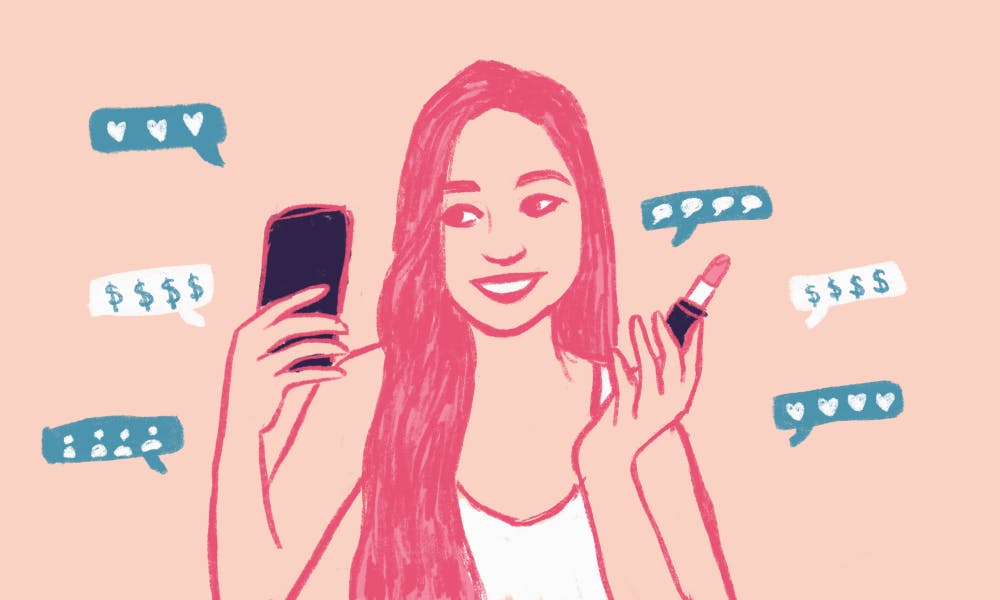Scroll through your Instagram feed. Look at the influencers you follow. How many of them are people of color? How many of them are disabled? How many of them are queer? Do any of them exist outside of the confines of societal standards of beauty? These are a lot of big questions, and they aren’t ones that we usually ask ourselves as we mindlessly scroll through Instagram, but maybe it’s about time we did.
Scanning through most people’s following lists reveals one obvious yet key characteristic about social media culture today: we like looking at beautiful, rich people and seeing what they’re up to. The most followed people on Instagram are sports players, singers, models, and actresses. However, when grouped together, they are nowhere near a holistic representation of the millions upon millions of people that follow or worship them.
However, it’s not just those with overwhelming, pre–existing celebrity that dominate Instagram followings; it’s also those who have built their popularity on social media platforms—the nebulous influencer. Think people like Italian socialite Chiara Ferragni, personal trainer Kayla Itsines, comedian Lele Pons, or even Olympia of Greece, an actual princess of a defunct monarchy who posts pictures of her globetrotting, seemingly carefree life.
While there’s no shame in following people whose lives are aesthetically pleasing, it’s also been proven that social media can be really harmful for teenagers and young adults. The constant comparisons between yourself, your peers, and the people you aspire to be like are brutal,
especially on top of all the other responsibilities we have to handle. And all that comparison and pressure isn’t just bad for the people consuming content—it’s also difficult for the influencers putting it out.
Although there’s no real antidote to comparing yourself to people on social media, aside from deleting it, there are a plethora of accounts that are there to build up body–confidence, self–esteem, and mental health that go unnoticed by the majority of Instagram users.
A favorite of many is @bodyposipanda, run by Megan Jayne Crabbe. Her account is a mix of pure joy, reminders that "fat" isn’t the worst possible label, and tips on how to stay body–positive in a world that discourages it. She posts videos of her joyfully dancing in her underwear to Lizzo, photos of her at movie premieres with little–to–no makeup on, and memes that encourage appreciation and respect for bodies of all colors, shapes, and sizes.
Katie Sturino, fashion blogger and founder of personal care line Megababe, handles all things fashion and beauty. This includes talking about solutions to thigh chafe, melasma, body odor, and boob sweat—among other things. She’s also known for her Instagram posts that ‘supersize the look,’ where she takes outfits worn by thin celebrities and finds similar, mostly cheaper alternatives that prove a chic outfit has no size.
Mama Cax is an influencer, model, survivor of bone cancer, and amputee who works to “dismantle the image of what people with disabilities should be or look like.” She posts beautiful photos accompanied by interesting scenery, upscale clothing, and inspiring captions, demonstrating that living with scars and a prosthetic leg doesn't detract from her quality of life or her ability to be pretty damn cool.
Chances are you’ve heard about Jameela Jamil in some capacity, good or bad. She’s well–known for her savage attacks on influencers like the Kardashians who promote diet teas, appetite–suppressing lollipops, and laxative products. However, the community she founded, “I Weigh,” has an Instagram page focused on embracing the bodies we’re given. It’s a mix of political critique, information about eating disorders and mental health, memes, poetry, and more. Her goal is to influence people of all genders, colors, and abilities to stop viewing weight as a number that defines a person.
Ashlee Bennett, is a certified therapist in Australia who focuses on body image. She not only discusses ways to improve body image, but also talks about the Eurocentric and patriarchal political implications of fatphobia. Bennett encourages body positivity through art—specifically sculpture—and runs workshops in Australia and the U.S. that are meant to help people reconnect with their bodies through creative mediums. Her posts are thought–provoking and help encourage not just self–acceptance, but also accountability for participating in diet culture.
Now, social media is not an evil thing that needs to be avoided at all costs. But, we can always be better at curating our feeds as a beacon of positivity, not just as a place that makes us strive for endless change. We all need to start actively breaking down the societal structures that inhibit us from developing the best body image possible—one Instagram post at a time.

